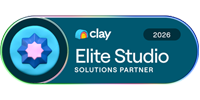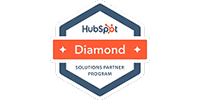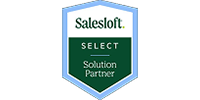Maximizing Your Business Potential with CRM Consulting
Discover how CRM consulting can help your business reach new heights and unlock its full potential. Most businesses have a CRM, but how they use it can accelerate their growth or hold them back. An optimized CRM helps you forecast revenue, make educated decisions around your marketing spend, and create a better prospect and customer experience. A cluttered or poorly organized CRM can frustrate your team and create confusion around how you are or aren't hitting your revenue goals.
Whether you are working with HubSpot, Salesforce, or a different platform, your CRM should be a business asset, not a source of frustration.
Understanding the Role of your CRM in Business Growth
CRM (Customer Relationship Management) platforms allow businesses to centralize customer data, track customer interactions, and gain valuable insights that can inform marketing, sales, and customer service strategies. Businesses can personalize their interactions with prospects and clients, which is a better experience for the client.
Additionally, CRM systems facilitate effective lead management, helping businesses identify and nurture potential customers, ultimately leading to increased sales. By having access to real-time data, sales teams can prioritize leads, identify upsell and cross-sell opportunities, and make data-driven decisions. Overall, CRM plays a pivotal role in driving business growth and maximizing customer satisfaction.
All of that is only possible if your CRM is used consistently. If it's full of outdated information, broken automation, or duplicates, it fails to be useful. When your internal teams don't see its value, they stop using it consistently, exacerbating the problem. If you find yourself in that situation, you need to clean up and optimize your CRM for it to best serve your organization. You may need CRM consulting services to get back on track.
Choosing the Right CRM Consulting Partner
When it comes to CRM implementation or optimization, choosing the right consulting partner is crucial. A reputable CRM consulting partner can provide valuable expertise, guidance, and support throughout the implementation process. They can help businesses assess their needs, identify the most suitable CRM solution, and customize it to fit their specific requirements.
To choose the right CRM consulting partner, businesses should consider factors such as experience, industry knowledge, and client testimonials. It is important to select a partner who has a proven track record of successfully implementing CRM solutions in businesses similar to yours. Additionally, the consulting partner should have a deep understanding of your industry and the challenges you face, as this will ensure they can tailor the CRM solution to address your unique needs.
Furthermore, the consulting partner should provide comprehensive training and ongoing support to ensure a smooth transition and successful adoption of the CRM system. They should also offer regular system updates and upgrades to keep your CRM solution up-to-date with the latest features and functionalities. By choosing the right CRM consulting partner, businesses can maximize the benefits of CRM and achieve their growth objectives.
Tailoring CRM Solutions to Your Business Needs
Every business is unique, and their CRM solution should reflect their specific needs and requirements. One of the key advantages of CRM consulting is the ability to tailor the CRM solution to align with your business processes and goals.
A CRM consulting partner will work closely with your business to understand your existing workflows, data requirements, and user preferences. They will then customize the CRM system to ensure it effectively supports your business operations and provides the desired functionalities.
Optimizing the CRM solution involves configuring various modules, such as contact management, sales automation, marketing automation, and customer service. The consulting partner will collaborate with your team to define custom fields, workflows, and automation rules that align with your business processes. They will also ensure seamless integration with existing systems and data migration from legacy systems.
By tailoring the CRM solution to your business needs, you can optimize the system's performance, increase user adoption, and achieve better results. A customized CRM solution will enable your team to work more efficiently, improve customer satisfaction, and drive business growth.
What is Possible in CRM Optimization?
A properly optimized CRM enhances productivity and maximizes the benefits of a CRM platform. Once the CRM solution is implemented, businesses should focus on developing and implementing effective CRM strategies to drive results.
One of the key CRM optimization strategies is streamlining processes and automating repetitive tasks. CRM systems offer various automation capabilities, such as lead scoring, email marketing automation, and sales pipeline management. By automating these processes, businesses can save time, reduce manual errors, and improve overall efficiency.
Another important CRM strategy is leveraging data and analytics to gain valuable insights. CRM systems provide robust reporting and analytics features that allow businesses to track key performance indicators (KPIs), measure ROI, and identify areas for improvement. Customized reports and dashboards ensure you can look at the metrics that matter to your business.
Moreover, CRM strategies can optimize on prospect and client engagement and relationship management. Businesses can use CRM systems to personalize interactions and provide timely and relevant communication.
If you are frustrated by a CRM that feels more like a hassle than a business growth driver, contact us for a free consultation.










